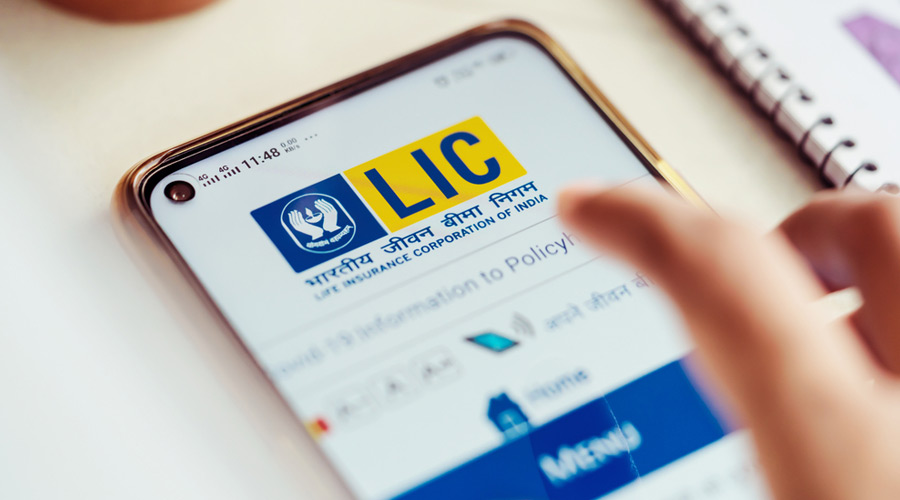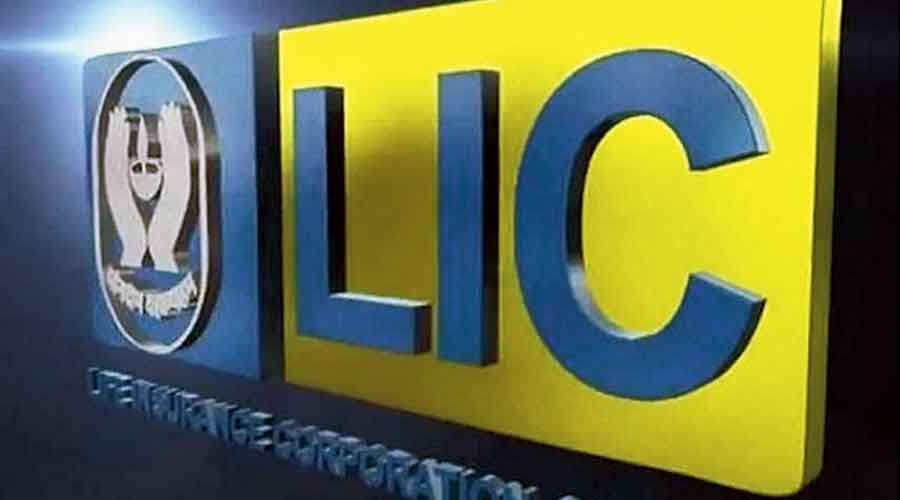LIC’s initial public offering, expected to raise up to Rs 210 billion, opened to small investors Wednesday after being oversubscribed by high-profile institutional investors.
-
As of 12:57 pm, the LIC IPO attracted bids for 5.53 crore equity shares against the IPO size of 16.20 crore shares. Within three hours of opening on Wednesday, subscriptions stood at ed 34 per cent. (ndtv.com)
Even though the government slashed the size of LIC’s public offering by 60 per cent due to market turbulence triggered by Russia’s invasion of Ukraine and economic slowdown and inflation worries, it’s still India’s biggest-ever IPO.
The government is selling a 3.5 per cent stake in the insurance behemoth, down from the 5.0 per cent it initially hoped to unload. It is hoping that the proceeds can be used to help plug a hole in the country’s yawning fiscal deficit.
The government has indicated that it could offload as much as 25 per cent of LIC “over a period of time.”
The offering, which closes on May 9 and will start trading on stock exchanges on May 17, tops digital payment giant Paytm’s more than Rs 160 billion issue in November of last year. Paytm is now trading at around Rs 675, vastly below its issue price of Rs 2,150 share after analysts said the unprofitable company had been too aggressively priced.
The government has been keen to avoid the same fate for LIC’s offering with analysts saying the issue is “favourably priced” relative to its prospects.
The state-run insurer, known for its blue and yellow logo, will take orders from retail investors for five days starting Wednesday and is expected to draw heavy interest from “mom-and-pop” investors and policyholders of the 65-year-old mega-insurer.
The insurer raised Rs 56.27 billion from 123 anchor investors Monday. Heavy-weights such as Singapore’s GIC Pte, the Monetary Authority of Singapore, French bank Societe Generale, and Norway’s sovereign wealth fund were among the big investors.
The big investors subscribed to the anchor book at Rs 949, the top end of the bid range.
Indian investors, many of whom have an emotional attachment to the brand, are expected to want to buy into offer, having heard the company’s name all of their lives.
The issue is priced at Rs 902 to Rs 949. LIC shares are being quoted at a premium of up to Rs 90 in the grey market, representing a 10 per cent premium to the upper end of the price band. The grey market price is expected to rise further as the listing approaches.
The grey market is an unofficial market for financial securities and gives an indication of market appetite for a stock.
Under the IPO, retail investors are getting 35 per cent of the float and will get a Rs 45 discount from the IPO price. Some 10 per cent of the shares being offered are being set aside for policyholders who will get a Rs 60 discount on each share.
Many investors regard LIC as “a widows-and-orphans” share, one that’s considered to be a safe bet as the insurer controls two-third of the Indian market with 292 million policies. Arafat Saiyed, analyst at Reliance Securities, said he saw LIC as a solid investment “in view of the giant market share, largest number of assets under management, strong brand, diverse portfolio of products and valuation comfort.”
But there are worries about the government’s longstanding use of LIC as “investor of last resort” to bail out troubled publicly owned companies. Some analysts fear that the government will keep using the insurer, even when it’s publicly traded, to rescue state firms going down the tubes and support the share market during downturns.
There are also concerns that LIC won’t be able to perform as nimbly as fast-growing private players that include HDFC Life Insurance and SBI Life Insurance.
Private sector insurance companies have been growing faster than LIC and gaining market share.
But the big plus points for LIC is that the Indian insurance sector is still under-penetrated, "presenting huge potential for growth,” said Raghav Garg, analyst at Nirmal Bang. He said that the pricing of the IPO represented an “undemanding valuation for a sector leader.”











